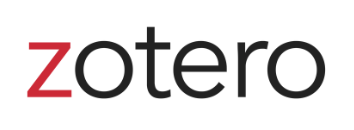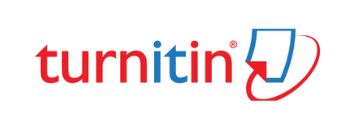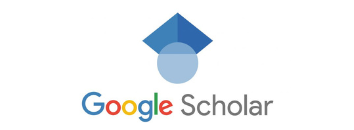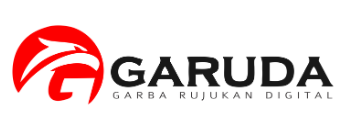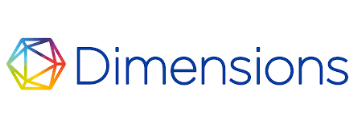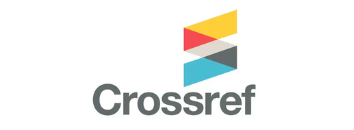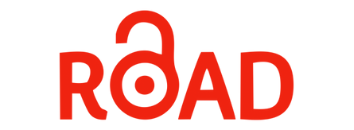Exploring the Pathways to Engagement: The Role of Psychological Climate, Gratitude, and Self-Efficacy in Small Business Contexts
DOI:
https://doi.org/10.24002/kinerja.v29i1.10511Keywords:
psychological climate, work engagement, gratitude, general self-efficacyAbstract
This study explores the relationship between psychological climate and work engagement, focusing on the mediating roles of gratitude and general self-efficacy in small business contexts. Data were collected from 180 employees working in small businesses in two cities in Central Java through an online questionnaire. Respondents were selected using a purposive sampling technique to ensure relevant work experience. Structural Equation Modeling (SEM) with Partial Least Squares (PLS) was employed to analyze the data. The results revealed that the direct influence of psychological climate on work engagement was not supported. However, the findings underscore the significant mediating roles of gratitude and general self-efficacy. Gratitude amplifies emotional connection, while general self-efficacy fosters confidence translating a positive psychological climate into greater work engagement. These findings highlight the importance of internal psychological mechanisms in driving employee engagement in small businesses. The study suggests that managers should focus on creating a supportive workplace climate while fostering gratitude and self-efficacy through targeted interventions. These strategies could help small businesses enhance employee engagement, even in resource-constrained environments. Future research could explore additional mediators and longitudinal effects to deepen the understanding of these relationships.
References
Al-Haddad, L., Sial, M., Ali, I., Rahmat, A., Nguyen Vinh, K. and Thai, H., 2019. The role of small and medium enterprises (SMEs) in employment generation and economic growth: A study of the marble industry in an emerging economy. International Journal of Financial Research, 10(6), pp.174–186. Available at: https://doi.org/10.5430/ijfr.v10n6p174.
Bakker, A.B., 2022. The social psychology of work engagement: State of the field. Career Development International, 27(1), pp.36–53. Available at: https://doi.org/10.1108/CDI-08-2021-0213.
Bakker, A.B. and de Vries, J.D., 2020. Job Demands–Resources theory and self-regulation: new explanations and remedies for job burnout. Anxiety, Stress, & Coping, 34(1), pp.1–21. Available at: https://doi.org/10.1080/10615806.2020.1797695.
Bakker, A.B. and Demerouti, E., 2014. Job Demands–Resources Theory. In: P.Y. Chen and C.L. Cooper, eds. Work and Wellbeing: A Complete Reference Guide, Volume III. John Wiley & Sons, pp.1–28. Available at: https://doi.org/10.1002/9781118539415.
Bakker, A.B. and Demerouti, E., 2017. Job demands–resources theory: Taking stock and looking forward. Journal of Occupational Health Psychology, 22(3), pp.273–285. Available at: https://doi.org/10.1037/ocp0000056.
Bakker, A.B., Demerouti, E. and Sanz-Vergel, A.I., 2023. Job Demands–Resources theory: Ten years later. Annual Review of Organizational Psychology and Organizational Behavior, 10, pp.25–53. Available at: https://doi.org/10.1146/annurev-orgpsych-120920-053933.
Bakker, A.B., Demerouti, E., de Boer, E. and Shaufeli, W.B., 2003. Job demands and job resources as predictors of absence duration and frequency. Journal of Vocational Behavior, 62(2), pp.341–356. Available at: https://doi.org/10.1016/S0001-8791(02)00030-1.
Bandura, A., 1977. Self-efficacy: Toward a unifying theory of behavioral change. Psychological Review, 84(2), pp.191–215. Available at: https://doi.org/10.1037/0033-295X.84.2.191.
Bandura, A., 1997. Self-efficacy: The Exercise of Control. New York: W. H. Freeman.
Brown, S.P. and Leigh, T.W., 1996. A new look at psychological climate and its relationship to job involvement, effort, and performance. Journal of Applied Psychology, 81(4), pp.358–368. Available at: https://doi.org/10.1037/0021-9010.81.4.358.
Canavesi, A. and Minelli, E., 2021. Servant leadership and employee engagement: A study in small businesses. Journal of Business Ethics, 174(4), pp.931–947. Available at: https://doi.org/10.1007/s10551-020-04689-2.
Chaudhary, R., Rangnekar, S. and Barua, M.K., 2012. HRD climate, occupational self-efficacy, and work engagement: A study from India. The Psychologist-Manager Journal, 15(2), pp.86–105. Available at: https://doi.org/10.1080/10887156.2012.676938.
Chen, I.-S., 2016. Examining the linkage between creative self-efficacy and work engagement: The moderating role of openness to experience. Baltic Journal of Management, 11(4), pp.516–534. Available at: https://doi.org/10.1108/BJM-04-2015-0107.
Chun-Liang, C., Yao-Chin, L., Wei-Hung, C., Cheng-Fu, C. and Pandia, H., 2021. Role of government to enhance digital transformation in small service business. Sustainability, 13(3), p.1028. Available at: https://doi.org/10.3390/su13031028.
Demerouti, E., Bakker, A.B., Nachreiner, F. and Schaufeli, W.B., 2001. The job demands-resources model of burnout. Journal of Applied Psychology, 86(3), pp.499–512. Available at: https://doi.org/10.1037/0021-9010.86.3.499.
Desai, K., O’Malley, P. and Emily, V.C., 2024. Impact of heartfulness meditation practice compared to gratitude practices on well-being and work engagement among healthcare professionals: Randomized trial. PLoS ONE, 19(6), e0304093. Available at: https://doi.org/10.1371/journal.pone.0304093.
Ding, H. and Miao, Q., 2023. The influence of ethical leadership on work engagement: The moderating role of perceived social responsibility climate. International Journal of Human Resource Management, 34(5), pp.935-960. Available at: https://doi.org/10.1080/09585192.2023.2143765.
Fehr, R., Fulmer, A., Awtrey, E. and Miller, J., 2017. The grateful workplace: A multilevel model of gratitude in organizations. Academy of Management Review, 42(2), pp.361–381. Available at: https://doi.org/10.5465/amr.2014.0374.
Gashi, S., 2024. Barriers in the development of small businesses in Kosovo. Theoretical and Practical Research in Economic Fields, 15(2), pp.256-266. Available at: https://doi.org/10.14505/tpref.v15.2(30).09.
Gulyani, G. and Sharma, T., 2018. Total rewards components and work happiness in new ventures: The mediating role of work engagement. Evidence-based HRM: A Global Forum for Empirical Scholarship, 6(3), pp.255-271. Available at: https://doi.org/10.1108/EBHRM-12-2017-0063.
Gwamanda, S. and Mahembe, B., 2023. The moderating effects of social climate on work engagement and job performance in small enterprises. African Journal of Business Management, 17(2), pp.112-128. Available at: https://doi.org/10.5897/AJBM2023.9571.
Hair, J.F., Hult, G.T.M., Ringle, C.M. and Sarstedt, M., 2022. A primer on partial least squares structural equation modeling (PLS-SEM). 3rd ed. SAGE Publications.
Hair, J.F., Risher, J.J., Sarstedt, M. and Ringle, C.M., 2019. When to use and how to report the results of PLS-SEM. European Business Review, 31(1), pp.2-24. Available at: https://doi.org/10.1108/EBR-11-2018-0203.
Hasan, S.F.E., Mortimer, G., Lings, I.N. and Neale, L., 2017. Examining the antecedents and consequences of gratitude. Journal of Services Marketing, 31(1), pp.34-47. Available at: https://doi.org/10.1108/JSM-01-2016-0048.
Heng, Q. and Chu, L., 2023. Self-efficacy, reflection, and resilience as predictors of work engagement among English teachers. Frontiers in Psychology, 14, 1160681. Available at: https://doi.org/10.3389/fpsyg.2023.1160681.
Hooi, L.W., 2024. The dynamics of crisis home office and employee engagement. Evidence-based HRM. Advance online publication. Available at: https://doi.org/10.1108/EBHRM-08-2023-0225.
Huang, J., 2022. Does benevolent leadership consistently lead to employees' voluntary behaviors? Leadership & Organization Development Journal, 43(8), pp.1234-1251. Available at: https://doi.org/10.1108/LODJ-04-2021-0141.
James, L.R., James, L.A. and Ashe, D.K., 1990. The meaning of organizations: The role of cognition and values. In: B. Schneider, ed. Organizational climate and culture. Jossey-Bass, pp.40–84.
Jindal, D., Boxall, P., Cheung, G.W. and Hutchison, A., 2023. How do work engagement and work autonomy affect job crafting and performance? An analysis in an Indian manufacturer. Personnel Review, 52(8), pp.2008-2024. Available at: https://doi.org/10.1108/PR-11-2019-0646.
Kahn, W.A., 1990. Psychological conditions of personal engagement and disengagement at work. Academy of Management Journal, 33(4), pp.692–724. Available at: https://doi.org/10.2307/256287.
Komase, Y., Watanabe, K. and Kawakami, N., 2021. Effects of a gratitude intervention program on work engagement among Japanese workers: A protocol for a cluster randomized controlled trial. BMC Psychology, 9, p.35. Available at: https://doi.org/10.1186/s40359-021-00541-6.
Kossowska, M. and Łaguna, M., 2018. Personality, job resources, and self-efficacy as predictors of volunteer engagement in non-governmental organizations. Personality and Individual Differences, 129, pp.70-79. Available at: https://doi.org/10.2478/pepsi-2018-0003.
Kossyva, D., Theriou, G., Aggelidis, V. and Sarigiannidis, L., 2023. Definitions and antecedents of engagement: A systematic literature review. Management Research Review, 46(5), pp.719-738. Available at: https://doi.org/10.1108/MRR-01-2021-0043.
Lazauskaite-Zabielske, J., Ziedelis, A. and Urbanaviciute, I., 2021. Who benefits from time-spatial job crafting? The role of boundary characteristics in the relationship between time-spatial job crafting, engagement, and performance. Baltic Journal of Management, 16(1), pp.1-19. Available at: https://doi.org/10.1108/BJM-07-2020-0236.
Li, L., Zheng, X. and Zhang, Q., 2022. Does leaders' adoption of employee voice influence employee work engagement? Personnel Review, 51(2), pp.683-698. Available at: https://doi.org/10.1108/PR-04-2020-0262.
Lim, C.H., Ra, K.H. and Kim, S.H., 2025. Navigating job demands and resources in policing: The role of self-efficacy in work burnout and engagement. Policing: An International Journal, 48(1), pp.230-247. Available at: https://doi.org/10.1108/PIJPSM-07-2024-0108.
Liu, J., Cho, S. and Putra, E.D., 2017. The moderating effect of self-efficacy and gender on work engagement for restaurant employees in the United States. International Journal of Contemporary Hospitality Management, 29(1), pp.624-642. Available at: https://doi.org/10.1108/IJCHM-10-2015-0539.
Mandal, P., 2020. Small businesses: Strategies and initiatives for positioning and branding. International Journal of Business Strategy and Automation, 1(3), pp.24-33. Available at: https://doi.org/10.4018/IJBSA.2020070102.
McCullough, M.E., Emmons, R.A. and Tsang, J.A., 2002. The grateful disposition: A conceptual and empirical topography. Journal of Personality and Social Psychology, 82(1), pp.112–127. Available at: https://doi.org/10.1037/0022-3514.82.1.112.
Naqshbandi, M.M., Kabir, I., Nurul, A.I. and Islam, M.Z., 2024. The future of work: Work engagement and job performance in the hybrid workplace. The Learning Organization, 31(1), pp.5-26. Available at: https://doi.org/10.1108/TLO-08-2022-0097.
Portovaras, T., Harbar, Z., Sokurenko, I. and Samoilyk, I., 2020. Management of small business entities. Independent Journal of Management & Production, Suppl. Special Edition ISE, S&P, 11(8), pp.680-694. Available at: https://doi.org/10.14807/ijmp.v11i8.1226.
Putra, A.S.B., 2024. Work Engagement in Indonesian Small and Medium Enterprises: A Bibliometric Analysis of Emerging Research Trends. Bulletin of Counseling and Psychotherapy, 6(2). Available at: https://doi.org/10.51214/002024061011000.
Qi, J.M., Peng, Y., Lowman, G.H. and He, X., 2023. The impact of service climate on gratitude in driving customer outcomes. Journal of Services Marketing, 37(1), pp.78-95. Available at: https://doi.org/10.1108/JSM-12-2021-0458.
Rai, A., 2018. Differential relationship of challenge and hindrance demands with employee engagement: The moderating effect of job resources. International Journal of Sociology and Social Policy, 38(9/10), pp.887-906. Available at: https://doi.org/10.1108/IJSSP-12-2017-0174.
Rai, A. and Chawla, G., 2022. Exploring the interrelationship among job resources, job demands, work and organizational engagement. International Journal of Productivity and Performance Management, 71(5), pp.1916-1934. Available at: https://doi.org/10.1108/IJPPM-05-2020-0246.
Reina-Tamayo, A.M., Bakker, A.B. and Derks, D., 2018. The work engagement–performance link: An episodic perspective. Career Development International, 23(5), pp.478-496. Available at: https://doi.org/10.1108/CDI-10-2017-0179.
Ribeiro-Soriano, D., 2017. Small business and entrepreneurship: Their role in economic and social development. Entrepreneurship & Regional Development, 29(1-2), pp.1-3. Available at: https://doi.org/10.1080/08985626.2016.1255438.
Saari, T., Melin, H., Balabanova, E. and Efendiev, A., 2017. The job demands and resources as antecedents of work engagement. Baltic Journal of Management, 12(2), pp.240-254. Available at: https://doi.org/10.1108/BJM-05-2016-0112.
Saks, A.M., 2019. Antecedents and consequences of employee engagement revisited. Journal of Organizational Effectiveness: People and Performance, 6(1), pp.19-38. Available at: https://doi.org/10.1108/JOEPP-06-2018-0034.
Schaufeli, W.B., Bakker, A.B. and Salanova, M., 2006. The Measurement of Work Engagement With a Short Questionnaire: A Cross-National Study. Educational and Psychological Measurement, 66(4), pp.701–716. Available at: https://doi.org/10.1177/0013164405282471.
Schaufeli, W.B., Salanova, M., González-Romá, V. and Bakker, A.B., 2002. The measurement of engagement and burnout: A two-sample confirmatory factor analytic approach. Journal of Happiness Studies, 3(1), pp.71–92. Available at: https://doi.org/10.1023/A:1015630930326.
Schaufeli, W.B., Shimazu, A., Hakanen, J., Salanova, M. and De Witte, H., 2019. An ultra-short measure for work engagement: The UWES-3 validation across five countries. European Journal of Psychological Assessment, 35(4), pp.577–591. Available at: https://doi.org/10.1027/1015-5759/a000430.
Schaufeli, W.B. and Bakker, A.B., 2003. Utrecht work engagement scale: Preliminary manual. Utrecht: Occupational Health Psychology Unit, Utrecht University.
Schwarzer, R. and Jerusalem, M., 1995. Generalized Self-Efficacy scale. In: J. Weinman, S. Wright, and M. Johnston, eds. Measures in health psychology: A user’s portfolio. Causal and control beliefs. Windsor: NFER-NELSON, pp.35-37.
Toth, I., Heinänen, S. and Nisula, A.-M., 2020. Personal resources and knowledge workers’ job engagement. International Journal of Organizational Analysis, 28(3), pp.595-610. Available at: https://doi.org/10.1108/IJOA-07-2019-1830.
Tuymuratovich, A.M., 2021. The importance of small business in a market economy. Academic Journal of Digital Economics and Stability, 7, pp.61–68. Available at: https://doi.org/10.51699/ajdes.v7i.120.
Van den Broeck, A., Vander Elst, T., Baillien, E., Sercu, M., Schouteden, M., De Witte, H. and Godderis, L., 2017. Job demands, job resources, burnout, work engagement, and their relationships: An analysis across sectors. Journal of Occupational and Environmental Medicine, 59(4), pp.369-376. Available at: https://doi.org/10.1097/JOM.0000000000000964.
Van der Walt, F., 2018. Workplace spirituality, work engagement, and thriving at work. SA Journal of Industrial Psychology, 44. Available at: https://doi.org/10.4102/sajip.v44i0.1457.
Wang, C. and Chen, H.T., 2020. Relationships among workplace incivility, work engagement, and job performance. Journal of Hospitality and Tourism Insights, 3(4), pp.415-429. Available at: https://doi.org/10.1108/JHTI-09-2019-0105.
Wolter, C., Santa Maria, A., Gusy, B., Lesener, T., Kleiber, D. and Renneberg, B., 2019. Social support and work engagement in police work. Policing: An International Journal, 42(6), pp.1022-1037. Available at: https://doi.org/10.1108/PIJPSM-10-2018-0154.
Yuan, T. et al., 2024. How does psychosocial safety climate cross-level influence work engagement and job burnout: The roles of organization-based self-esteem and psychological detachment. BMC Nursing, 23(389). Available at: https://doi.org/10.1186/s12912-024-01935-8.
Zarrin, L., Ghafourifard, M. and Sheikhalipour, Z., 2023. Relationship between nurses’ reflection, self-efficacy, and work engagement. Journal of Caring Sciences, 12(3), pp.155-162. Available at: https://doi.org/10.34172/jcs.2023.31920.
Zhang, X., Liu, Y., Wang, S. and Shen, W., 2014. Is there a relationship between organizational climate and work engagement? Journal of Organizational Behavior, 35(4), pp.444-461. Available at: https://doi.org/10.1002/job.1890.
Downloads
Published
Issue
Section
License
Copyright (c) 2025 Martinus Parnawa Putranta

This work is licensed under a Creative Commons Attribution 4.0 International License.




